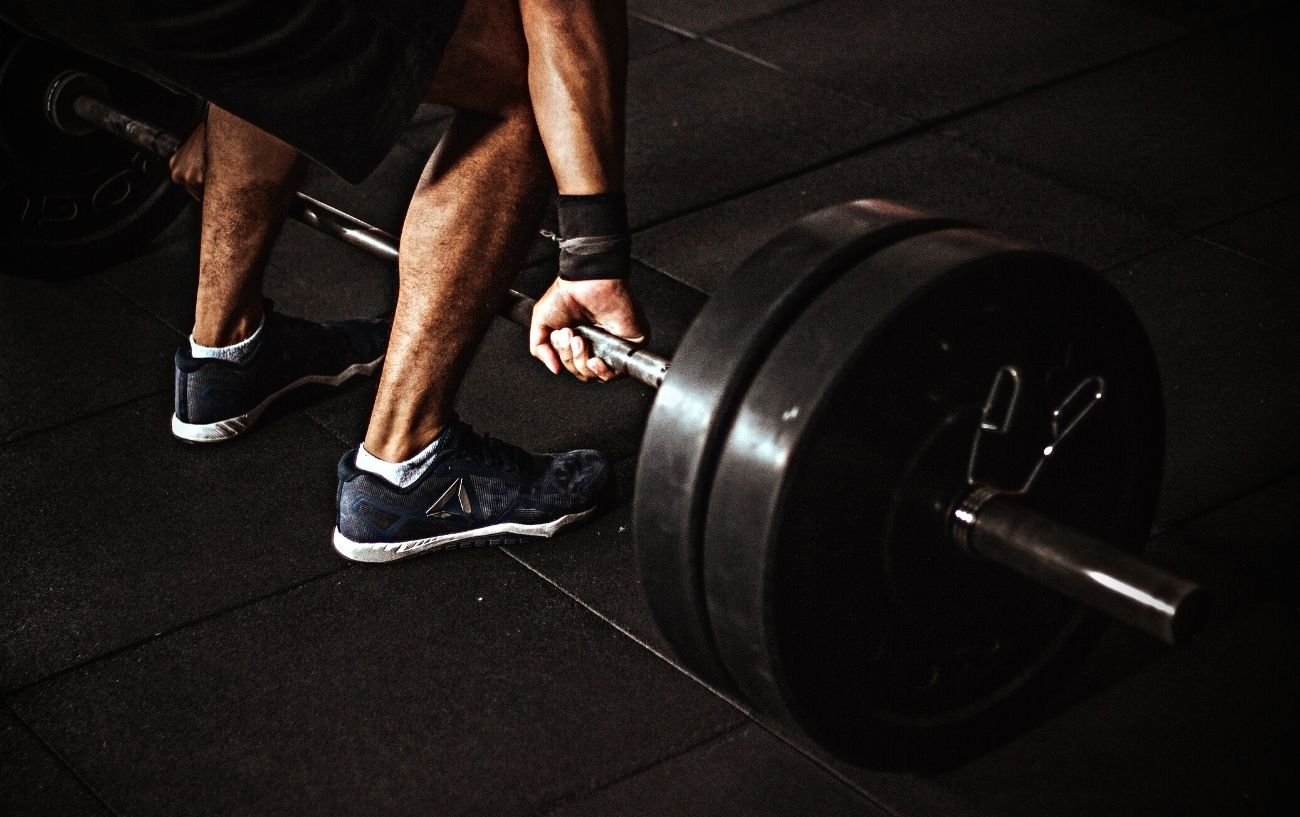Most people who start working out expect to experience certain things after the first few workouts: muscle soreness, perhaps stiffness in our joints, and fatigue. Another thing we usually hope to see is weight loss.
However, some people who begin a new exercise routine step on the scale after their first few workouts and are shocked to find that instead of seeing that number trending downward, they appear to be gaining weight after working out.
In fact, one of the most common questions beginners ask—albeit often with a bit of panic in their voice is—“Why am I gaining weight while working out?”
In other words, what is happening if you are working out yet still gaining weight?
In this article, we will discuss potential reasons why you may be gaining weight despite exercising or why you might be gaining weight while working out.
Let’s get started!

Why Am I Gaining Weight While Working Out?
There are several potential reasons why you might be gaining weight after working out. Here are some of the primary causes of weight gain despite working out.
#1: Post-Workout Muscle Inflammation
The most common cause for gaining weight after working out, particularly during the first few weeks of a new training program or after a particularly intense workout, is due to water retention.
This is temporary weight gain rather than a true increase in body fat.
Whenever you perform some type of stressful exercise such as running, heavy resistance training, or an interval workout, there is some amount of structural muscle damage that occurs.

Overloading your muscles causes microtears in the muscle fibers. This initiates a reparative process that will ultimately rebuild and strengthen your muscles. However, it also triggers a cascade of inflammation.
The body retains excess water to help facilitate the muscle reparative process.
Therefore, if your weight gain after exercise coincides with delayed-onset muscle soreness (DOMS), the start of a new workout routine, or follows a particularly strenuous workout or weight training session, the most likely reason that you are seeing your weight creep up on the scale post-workout is simply water retention from muscle inflammation.
Before you panic, the important question becomes, “How long does temporary weight gain after exercise last?”
In most cases, unless you caused pretty severe damage to your muscles, with proper fueling, hydration, and recovery, any temporary weight gain after working out from water retention should subside in about 72 hours.

#2: Your Diet Is High In Carbohydrates
Another common cause for gaining weight after working out is also due to water retention, but rather than the body holding onto water because of muscle damage and inflammation, the body is storing more water due to your diet.
Many athletes fuel with carbohydrates. Carbohydrates supply the glycogen your muscles need when producing energy during high-intensity exercise.
For this reason, endurance exercises such as running and high-intensity cycling, as well as strenuous strength training workouts, require fueling with carbs before and during longer workouts to support energy production.
For every gram of carbohydrates that your body stores as glycogen, another 3 to 4 grams of water are also stored because glycogen has to bind with water in order to be metabolized by the muscles for energy.1Kreitzman, S. N., Coxon, A. Y., & Szaz, K. F. (1992). Glycogen storage: illusions of easy weight loss, excessive weight regain, and distortions in estimates of body composition. The American Journal of Clinical Nutrition, 56(1), 292S293S. https://doi.org/10.1093/ajcn/56.1.292s

#3: You Are Increasing Your Muscle Mass
Depending on the type of exercise and training that you are doing and the diet that you are following, you might be gaining weight despite exercising because you are building muscle.
If you are engaging in hypertrophy training or intense strength training workouts and consume an adequate number of calories and grams of protein per day to support muscle growth, your body will respond favorably to your workouts by increasing your lean muscle mass.
You can monitor body recomposition changes and changes in your overall body composition with a body fat scale or another form of body fat analysis.
It is possible to lose fat and gain muscle at the same time, which would result in no net weight gain or weight loss, but this is often fairly tricky and requires discipline in your diet and training program.2Villareal, D. T., Aguirre, L., Gurney, A. B., Waters, D. L., Sinacore, D. R., Colombo, E., Armamento-Villareal, R., & Qualls, C. (2017). Aerobic or Resistance Exercise, or Both, in Dieting Obese Older Adults. New England Journal of Medicine, 376(20), 1943–1955. https://doi.org/10.1056/nejmoa1616338
Note that muscle does not weigh more than fat. One pound of muscle and one pound of fat weigh the same: one pound.
However, the volume taken up by one pound of muscle and one pound of fat is different, and per volume, muscle weighs more than fat.
Muscle tissue is denser than fat, so if you gain muscle and lose fat at the exact same rate, your overall body size (or the size of clothes you wear) will go down. Your circumference measurements will drop, and you’ll look leaner, but your weight on the scale will remain unchanged.
Hence, this is a reason why you could look skinnier despite having gained weight when working out.

#4: You Are Dehydrated
Probably the most counterintuitive but common reason that you may be gaining weight after exercise is dehydration.
When you exercise, your body sweats and you also lose more water through increased exhalation, which increases the amount of expired respiratory water vapor.
Therefore, unless you are taking in enough fluids before, during, and after your workout, you can easily become dehydrated, especially during longer endurance workouts or when exercising in a warm environment.
On the one hand, when you are dehydrated, your total body water levels drop, which results in a decrease in your weight on the scale.
However, dehydration actually causes the body to retain more water, as water is viewed as a scarce resource.
Although immediately after a very sweaty workout, it will appear that you have lost weight if you do not rehydrate adequately, the following day, you may find that you have gained weight on the scale because your body is now holding onto more water.

#5: You Are Overeating
Although working out does burn calories, some people overestimate the number of calories they have burned, which leads to overcompensation in terms of how many calories they consume.
You may also “reward yourself“ with food after a workout, but this can easily become excessive food intake.
Compensatory overeating can negate the caloric deficit you generated by doing the exercise in the first place and lead to a net caloric surplus. This will result in true weight gain because you are consuming more calories than you are burning.
In this instance, you can gain body weight despite exercising regularly and having a healthy diet, solely due to your calorie intake.
Studies suggest that exercise, such as running, may help control appetite.3Beaulieu, K., Hopkins, M., Blundell, J., & Finlayson, G. (2018). Homeostatic and non-homeostatic appetite control along the spectrum of physical activity levels: An updated perspective. Physiology and Behavior, 192, 23–29. https://eprints.whiterose.ac.uk/126090/
However, even if it’s not deliberate, some people also find that they have a compensatory spike in appetite after exercise that is disproportionately higher than the amount of work they did.
In other words, imagine a scenario where you perform a cardio workout on an elliptical machine and burn 400 calories.
If you feel incredibly hungry in the hours following your workout, you might consume at least 400 extra calories over what you would have had you not exercised or what you would otherwise need to maintain your weight.
This will result in a net surplus of calories, which will cause you to put on weight. Excess energy that you take in is converted to triglycerides and stored in adipose or fat tissue.
It may be worth speaking to a registered dietitian if you’re unsure about how to manage your diet whilst working out.

#6: You Are Overtraining
If you’re doing a lot of exercise, it’s natural to assume that you’d lose weight or at least not be gaining weight.
However, overtraining or doing too much exercise can overstress the body.
Overtraining and physically taxing workouts can increase your levels of cortisol, which is the primary stress hormone.
High levels of cortisol have been associated with increased appetite and an increased risk of weight gain, particularly in the abdominal region.4Donoho, C. J., Weigensberg, M. J., Emken, B. A., Hsu, J.-W., & Spruijt-Metz, D. (2011). Stress and Abdominal Fat: Preliminary Evidence of Moderation by the Cortisol Awakening Response in Hispanic Peripubertal Girls. Obesity, 19(5), 946–952. https://doi.org/10.1038/oby.2010.287 5Hewagalamulage, S. D., Lee, T. K., Clarke, I. J., & Henry, B. A. (2016). Stress, cortisol, and obesity: a role for cortisol responsiveness in identifying individuals prone to obesity. Domestic Animal Endocrinology, 56, S112–S120. https://doi.org/10.1016/j.domaniend.2016.03.004
Therefore, it’s possible that if you’re not allowing your body enough time to recover and you’re red-lining your efforts day after day, you’re gaining weight because your hormones are imbalanced and your cortisol levels are too high.
Hence, make sure to take rest days when needed and get enough sleep.

#7: You Just Started Working Out
Beginners who have just started an exercise program are most apt to gain weight after working out.
As mentioned, the body retains water to help the muscles repair damage after exercise, and if your body is unaccustomed to working out, there’s a greater chance that any type of physical activity will cause some amount of damage.
Your body retains fluid to help bring healing nutrients and amino acids to the site of any structural damage to heal your muscles as part of the repair process.
But, how long does temporary weight gain after exercise last, in this case, you ask?
This type of water retention may last for 48-72 hours after a workout, but if you’re working out several days per week, you’ll keep triggering the inflammatory process, making it appear that you’re gaining weight that won’t go away.
As your body adapts to your workout routine, the post-workout DOMS and muscle swelling should decrease, so your weight should drop a couple of weeks into your workout routine.
Stay patient and re-examine your diet to make sure you’re maintaining a caloric deficit if you are indeed trying to lose weight yet still gaining weight even though you are working out consistently.
If you are trying to lose weight and would like some more information on maintaining a caloric deficit, check out our guide: What Is A Calorie Deficit, And Is It The Best Way To Lose Weight?

Frequently Asked Questions:
Should I Stop Exercising If I’m Gaining Weight?
Exercising is good for your physical health and mental wellness, and you shouldn’t stop exercising completely just because you’re gaining weight, even if you have specific weight loss goals.
Take a look at the possible reasons for weight gain above, and think about which one might apply to you.
Make sure you are not overtraining, and that you are eating correctly and hydrating yourself.
If you think that you might be experiencing weight gain due to muscle damage or water retention and you’re exercising multiple days a week, you may find that with time your weight goes back down again.
If you’re aiming to lose weight, make sure you are maintaining a calorie deficit and eating healthily in addition to exercising.
There are medical conditions such as thyroid issues and diabetes that can also cause weight gain, so if you’re worried about your overall health, make sure to speak to a medical professional.
Is It Bad If I Gain Weight While Exercising?
Gaining weight while exercising is not necessarily a bad thing, and you certainly should not be demotivated if it happens.
As mentioned, especially if you’re new to exercising, the body undergoes a lot of changes and it’s important to give it time to adjust.
Try to focus on other measures of health and well-being such as:
- Does the exercise make you feel better?
- Does the exercise give you energy?
- Does the exercise improve your mood?
- Are you sleeping better?
- Are you eating fewer processed foods?
If you’re looking for a plan or training schedule to keep you exercising, motivated, and feeling good, check out our extensive library of workout guides for all abilities, or our running hub for everything you need to get your running shoes on and keep investing in your health.












